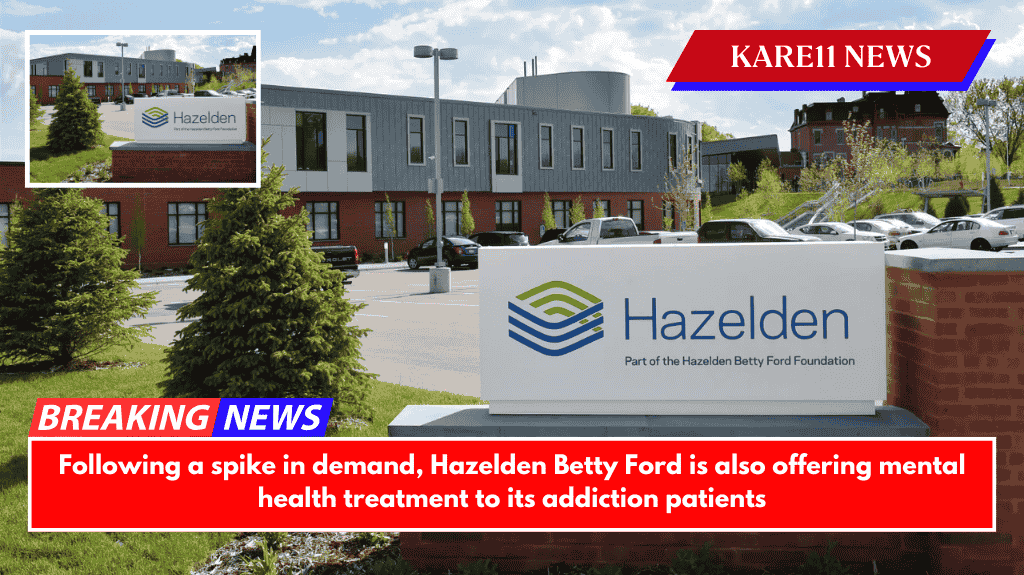Plymouth, Minnesota — The Hazelden Betty Ford Foundation recently announced a major expansion, but the addiction treatment provider is not adding to its current network of 15 locations across the country.
Instead, it expands how and what patients are treated for.
Beginning this month, substance abuse treatment and mental health care will be provided concurrently. According to Rannon Arch, Director of Co-Occurring Clinical Services for the Hazelden Betty Ford Foundation, mental health treatment is being integrated at all levels of care and across all sites.
“It’s just really redefining the way that we’re doing care here,” Arch told me. “It was necessary, in my opinion. I believe it took a lot of courage for us to acknowledge that our care must evolve alongside our patients.”
According to Hazelden Betty Ford, 79% of patients have more than one treatable mental health condition, representing a nearly 10% increase in just five years.
“The pandemic impacted our patients in pretty profound ways,” he told me. “Most of our patients have two to three – if not more – mental health conditions that they’re going through.”
According to Arch, 53% of patients suffer from anxiety disorders, 40% from depression, and 38% from trauma or another type of stress disorder.
Rannon Arch clarifies: “That’s often what’s returning them to back to substance use and so if we don’t start addressing their mental health in a more comprehensive way, our patients are at risk for undue outcomes that we don’t want them to have to go through.”
Kent Erdahl: “Exactly. “So were you realizing that you were – in some cases – treating the symptom, and not really the, the problem?”
Arch: “To an extent, I believe. This is now a truly integrated approach to care. This effort is aimed at getting to the root of the problem and assisting them in leading a healthier lifestyle.
He says the new approach will begin as soon as patients enroll.
Arch pointed out: “What we’ve now created are new pathways, so once we’ve gone through the screening with folks we now have ways to better place them into programming that is more specific to their needs and with how we can better treat them.”
Erdahl responded: “If someone comes in and they need help for a certain type of substance use but also are dealing with anxiety and trauma, correct, there’s a pathway that’s a little more tailored to their needs.”
Arch: “100%. We’re thinking about how we do group or individual therapy, psychiatric support, nutrition, wellness, and spiritual care; it affects all of these areas.”
Erdahl said: “This sounds like a pretty big deal.”
Arch: “It’s probably the most ambitious change we’ve implemented in 76 years. These are treatable conditions, and we have a number of innovative approaches to providing people with the tools and hope they seek.”


















Leave a Reply